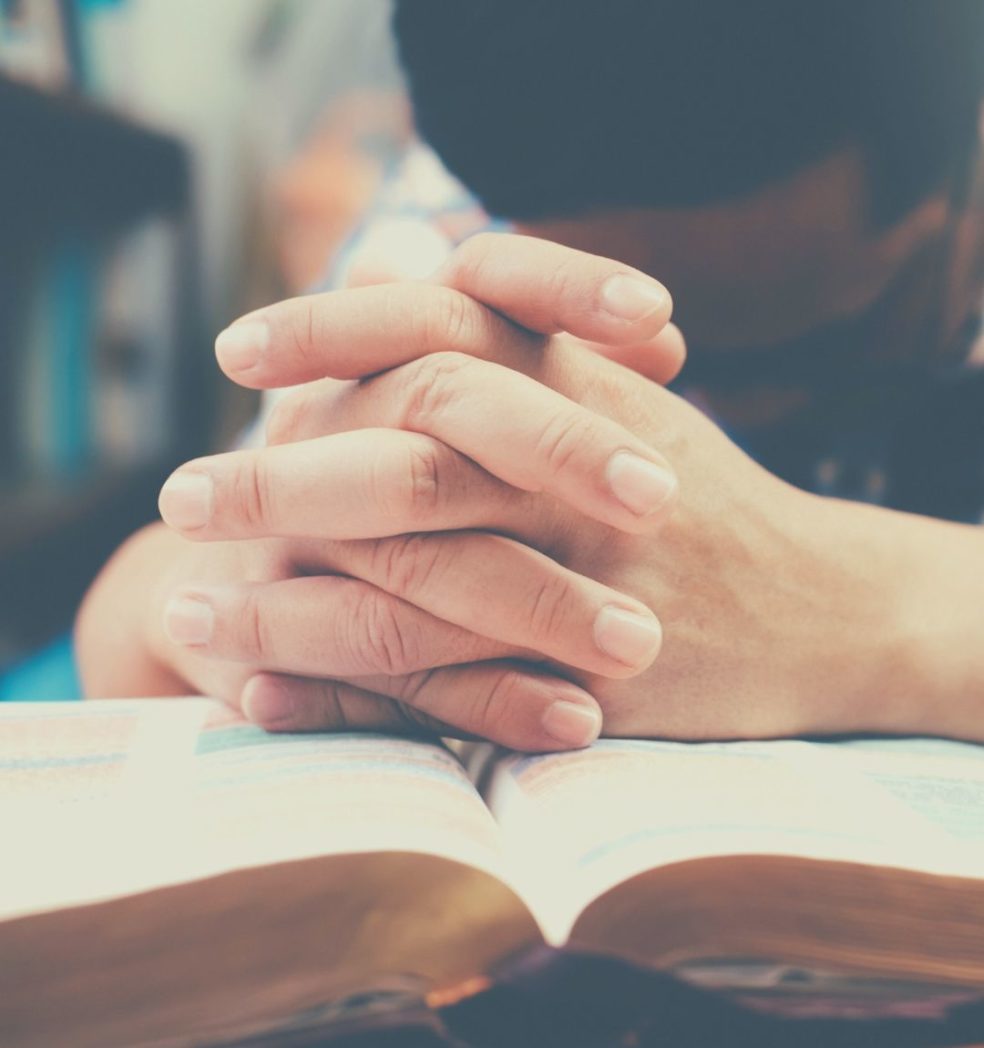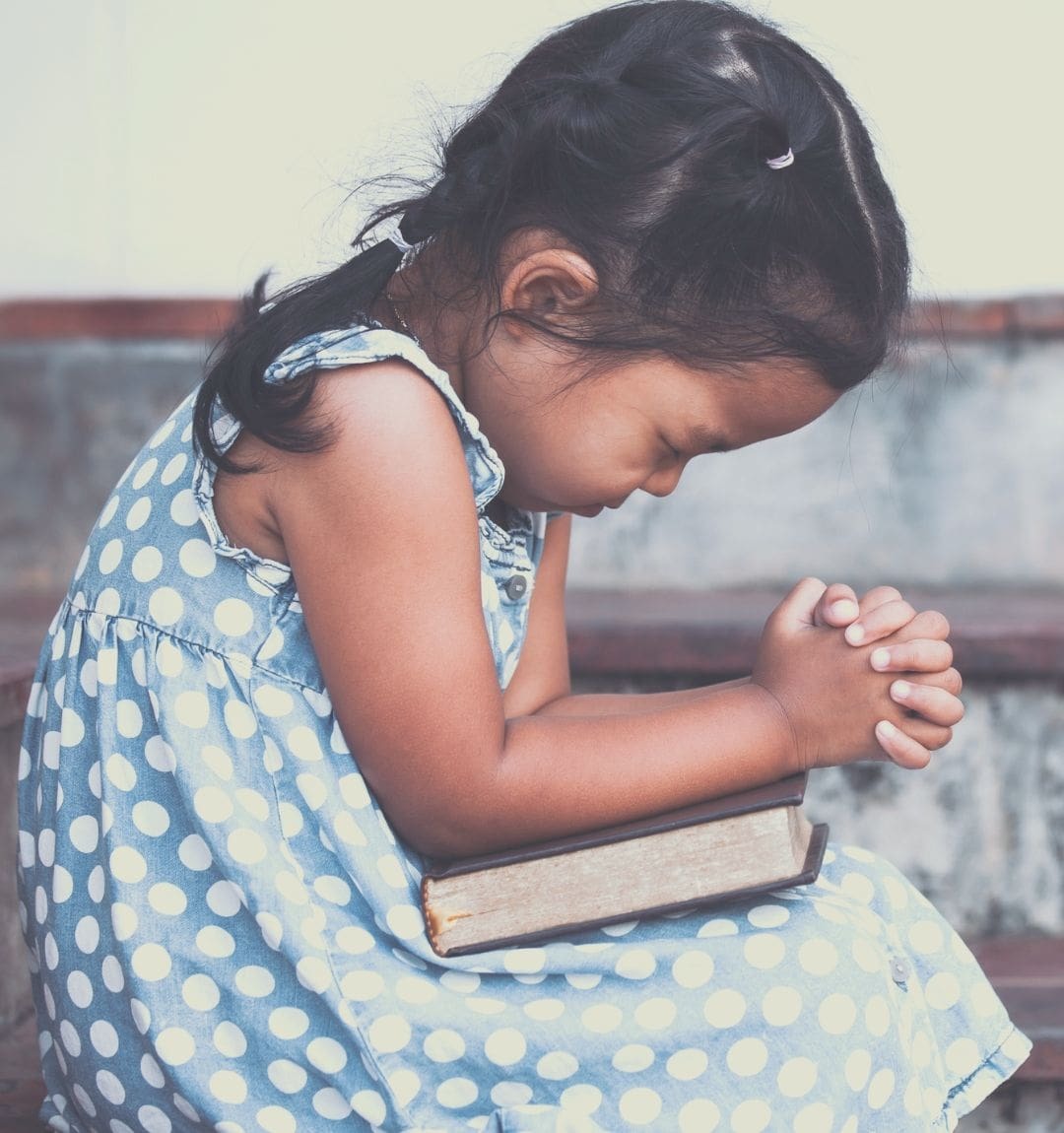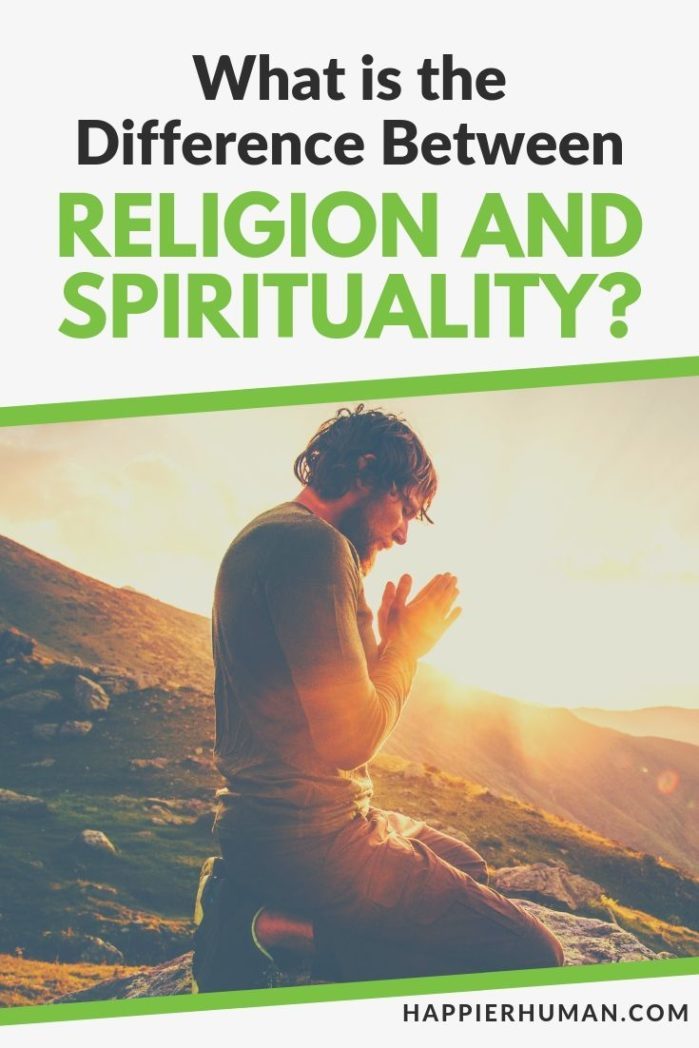There might be affiliate links on this page, which means we get a small commission of anything you buy. As an Amazon Associate we earn from qualifying purchases. Please do your own research before making any online purchase.
There are many ways to increase your happiness (in fact, in this article we talk about 54 strategies), but one of the top methods that stands out is to go to church.
You’ve probably heard people say they’re “spiritual but not religious” when describing their faith, and wondered what it truly means.
A majority of us often use the words “religion” and “spirituality” interchangeably, but they are entirely separate concepts.
So, what is the difference between religion and spirituality? In this article, we will define both and explain how they are different. (Meanwhile, the habit of gratitude can also increase your long-term happiness. If you're interested to learn more, check out The 90-Day Gratitude Journal that contains writing prompts designed to deepen your appreciation for what you have in life).
Defining Religion
Religion commonly refers to an institution that has a set of organized practices and a structured belief system shared by and among those who are members of the institution. Their beliefs, which are often transcendental, are passed on from members to converts, and are based on either a formally documented creed or established cultural practices.
In either case, there are professionals within each religion who act in positions of leadership and who represent formal aspects of the institution. The leaders often carry out certain rituals regarding the core beliefs of the religion, which lay the foundation for how one's life should be lived.
As a community or group sharing the same beliefs, religion functions as an extremely supportive social network. It creates practical implications for everyday behaviors in adherence to the beliefs, rituals, and practices of the group. Members of a religion often also follow distinctive dress codes (especially religious leaders), moral codes, and actions that are mandated by a supernatural being.
A religious person is committed to following the guidelines set by his or her religion. He or she observes the rites and practices, such as regularly attending church services on a Sunday for Christians, observing the Sabbath for Jews, and fasting during Ramadan for Muslims.

Defining Spirituality
Spirituality is about one's soul and inner self. Being spiritual involves holding one's personal set of beliefs and practices and searching for the purpose of life. Each person's own definition of spirituality can vary throughout their lifetime, adapting to individual experiences through personal study and self-reflection. The goal of spirituality is to realize one's inherent power to combat all of life's challenges, and connect with something greater than oneself. (To learn more, here are 10 ways you can be spiritual.)
Spirituality is a universal, personalized experience, and everyone's experience is unique. One may describe a spiritual experience as being sacred or transcendent, or plainly a true sense of liveliness and feeling interconnected, or pure gratitude. You can belong to a religious group and still be spiritual, and vice versa.
In fact, some may find that their spirituality is closely linked to a religion, while others may have their own personal relationship with a higher power. Others seek the meaning of life through their connections to nature or art.
When it comes to the religion vs. spirituality debate, neither is inherently good or bad. Spirituality is broader and more abstract than religion. Religion maintains a defined, tangible code of ethics, while spirituality is largely undefinable. However, both of these methods of believing in something help people live happy, meaningful lives.
The Differences Between Spirituality and Religion
The following characteristics differentiate a spiritual person from a religious person.
1. Individual vs. Group Beliefs
Spirituality is a solitary experience of the divine, while religion involves a group of people brought together by their common faith or beliefs about the divine. Religion aims to build one's character. It shapes one's beliefs, attitudes, and actions by giving importance to the adherence of rules. This unites people who share a religion, as they share character traits and outlooks on life. On the other hand, spirituality concentrates more on each person's individual soul.
There are many religions in our world, and one thing most have in common is that they preach the idea that their story is the right story. However, when someone is spiritual, they are able to pick out the things they believe from any religion and combine these truths to formulate their own set of beliefs. So, when asking the question, “Can you be spiritual and religious?” the answer is “yes—if your true beliefs fall in line with a certain religion.” However, many who are spiritual believe that everyone's ultimate truth is the same, despite any differences among them.
Spirituality focuses more on the quality of the message that is being offered than the differences in the details of the original story. For example, while Christians may focus on the story of Moses and the 10 Commandments in detail, someone who is spiritual may take away some broader messages from the story, such as being grateful for the things in one's life or always being honest.
However, while one's spiritual beliefs are typically unique, spirituality often enforces the idea that all people are the same. The world has no perimeters, races, or cultural partitions. Humanity is all one, with love being at the core of everyone's being. Despite any possible ideological differences, all humans are the same consciousness—they are just expressed in different ways. Because every human's essence is the same, it means that any differences are superficial. This understanding invites people to be inspired to embrace each other and support each other on the path to enlightenment together.
2. Progression of Beliefs
A spiritual person’s set of beliefs evolves as they learn more through their personal study of their own spirituality. Alternatively, in religion, the belief system is usually predefined. The recognized authorities of the religious group reinforce or communicate changes regarding the ideologies for members of the religious group to follow.
In this way, religion requires people to be obedient with their beliefs, keeping them fixed to scriptures or what is taught to them by religious leaders. Religion often discourages people from listening to their own instincts, and instead teaches people to accept and do what they’re told, without questioning it.

On the other hand, spirituality teaches people to constantly listen to their inner voice and use it as a guide to live a good life. Spirituality urges people to break free from obedience or conformity in order to create their own path and journey in life. Because of this, someone who practices spirituality may continually change their beliefs throughout their life. Nothing is set in stone, so what one may find to be “right” or “wrong” today may change down the line with new life experiences.
3. Spirituality has no rules.
A spiritual person often arrives at their own truths while they are developing their spirituality, rather than following an ideology or set of rules. The experience is often personal and occurs in private, allowing people to follow their own intuition and do the things that are in their own best interests.
Although some spiritual traditions offer theories and practices to help people on their journeys, they are not meant to be adopted as a set of beliefs. Rather, they're offered as tools for spiritual seekers to use to help their spiritual growth.
On the other hand, a religious person accepts the truth as defined by his or her religion, and these truths are often documented and shared with others. In religion, there is often a promise of punishment or reward for maintaining beliefs or following rituals. But for spirituality, the reward is just one's own inner peace.
The fear of punishment for one's actions is often a principle factor in religion. Those practicing religion fear the consequences of the way they live their lives after they die. Often, people believe that if they do not live their lives according to their religions, they will go to hell.
However, spirituality encourages people to focus their energy on positive things and to act based solely on love. When someone is spiritual, they do what they feel is right, despite any potential consequences.
While spirituality does not threaten punishment for a life lived in contrast to a set of rules, it often addresses karma. This is a principle of cause and effect where one's actions or intentions have a direct impact on their future. This means that one who lives with good intentions and practices good deeds will experience happiness in the future, while living with bad intentions may lead to future suffering.
When wondering, “Am I religious or spiritual?” think about whose rules you follow. Do you rely on the rituals of a certain church to carry you through times when your faith begins to wane? Do you count on an institution to organize your beliefs for you, or do you pick and choose what you want to believe? These are important questions to consider when you are trying to determine if you are religious or spiritual.
4. Origination of Beliefs
Spiritual people often learn and develop their beliefs through their own experiences (often through trial and error). This empowers people to discover their own truths without setting any limits as to the depth of one's understanding. Alternatively, a religious individual learns or develops their beliefs based on the experiences they are told about their religious founders or through parables.
Spirituality encourages people to create their own path, which allows people to take their own journey of enlightenment. With spirituality, self-discovery has no boundaries. It inspires people to trust their hearts and follow their own instincts. Spirituality is simply one's ability to recognize that every person is more than just a human body—they are a soul that has unlimited potential. Every person is essentially a small god—a unique and powerful manifestation of existence that serves a purpose in this world.

Spiritual people learn and develop their beliefs based on their own experience while religious people learns it based on the experiences they are told about their religious founders.
So, what is the difference between a spiritual person and a religious person? A spiritual person looks within themselves to do the right thing and a religious person looks to the outside for guidance.
People who are spiritual are able to adjust to new conditions and their discoveries throughout life. They are flexible in their beliefs. A major difference between religion and spirituality is believing versus being. Religion emphasizes the content of followers' beliefs and how those beliefs play out in their everyday lives. On the other hand, the focus of spirituality is on the process of becoming attuned to one's inner self.
Conclusion
In seeking the divine—whether from a church pew on a Sunday or on top of a ridge looking at a glorious sunrise—we increase our feelings of happiness, peace, and appreciation for the life that we have. Religion and spirituality are neither the same thing nor completely separate from one another. In spirituality, one may ponder, “Where do I find meaning in life, and what are my true values?” Meanwhile, in religion, common questions might be “What is the truth?” and “What is right and wrong?”
Where the two overlap is each person's individual experiences that impact how they think, feel, and act.
Are you more spiritual or religious? We’d love to hear your answers, so feel free to share your thoughts in the comment section below.
Meanwhile, if you're looking for ways of adding meaning into your life, a habit of gratitude is one way to start. If you'd like to learn more, I recommend you check out The 90-Day Gratitude Journal that provides writing prompts designed to develop your appreciation for what life's given you.


